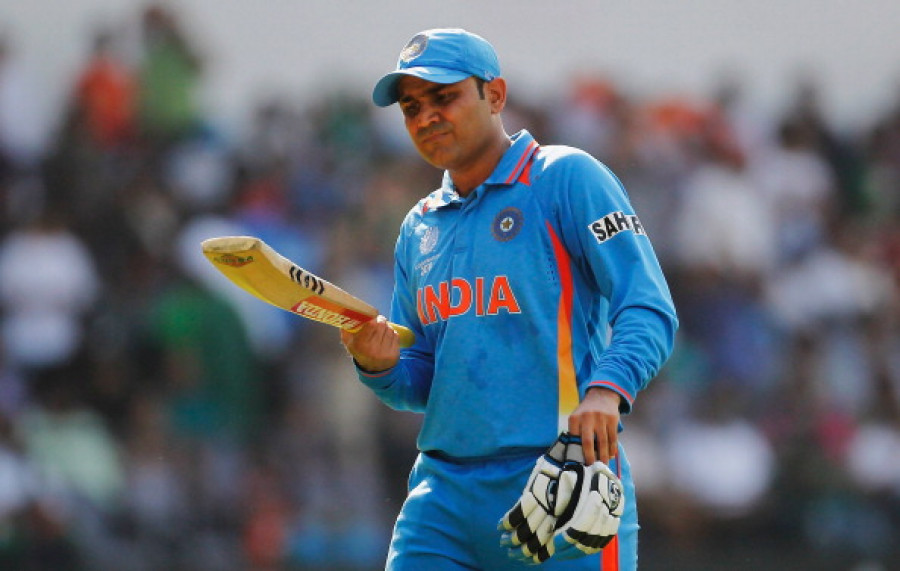Interruptions during cricket matches or any sport can be irritating. It gets worse when such interruptions bring a premature end to a game. As far as cricket is concerned, the most common spoilsport has been rain.
But the worst stoppage the game of cricket has seen is angry crowd behavior.
The mention of such disruptions instantly brings to our mind the India-Sri Lanka 1996 World Cup semi-final. The violence carried out by the crowd in Kolkata forced the match officials to end the game abruptly and declare Sri Lanka as the winners [India was anyways about to lose the match].
In the same year in the India v/s Australia match in the Titan Cup, the crowd in Bangalore went berserk when Mohammad Azharuddin was wrongly given out LBW. They finally settled down only after Azhar himself went to that part of the stand to request them to not indulge in such behavior.
But the worst crowd behavior in India came in 2002. Although it was the most inexplicable reaction by the crowd, it hardly finds a place in public memory.
India was playing a 7-match ODI series against the touring West Indies and were two down after the first two matches. The third match was in Rajkot and India was eager to open their account in the series in order to have a chance of winning the tournament.

West Indies batted first and scored 300 for 5, helped by Ramnaresh Sarwan’s 84, Shivnarine Chanderpaul’s 74 and Chris Gayle’s 72. India came out all guns blazing in reply. Skipper Saurav Ganguly and Virendra Sehwag had a 196 run opening partnership in which the latter scored 110!
When Sehwag is in such form, people would drop everything to watch him bat, irrespective of which cricketing country you belong to. But for some truly weird reason, the crowd at Rajkot started indulging in violent behavior by throwing stones and other items on the field, threatening the safety of the West Indies players.
Also read: Forgotten spells – When Srinath was on a hattrick THRICE in one innings
The security personnel tried their best to cool things down. But they were not enough in the face of the unruly crowd, which ensured that the match was halted thrice because of their antics.
Such behavior is somewhat understandable [but not justified by any means] if India is losing the match, like it happened in the 1996 semi-final. But why would anyone even think of showing such behavior when the home team is going great guns and with someone like Sehwag in full flow?
Finally, the match officials had to prematurely stop the game and award the match to India through the Duckworth-Lewis method. India were at a comfortable position at 200 for 1 in 27.1 overs with Sehwag not out on 114 off just 82 balls and VVS Laxman yet to open his account.
Also read: One of Wasim Akram’s biggest achievements is forgotten
The decision turned out to be controversial. The West Indies Cricket Board (WICB) complained to the International Cricket Council (ICC) against the decision of the Match Refree Mike Procter to use the D/L method to decide the winner. As per WICB, the match should have ended in ‘no result’ since it wasn’t halted by any force of nature.
When the 1996 WC semi-final was prematurely stopped, Sri Lanka were declared winners by default and not through D/L method.
Whether it was right to declare India the winners is debatable. But there is certainly no doubt that the people who came to see the match in Rajkot were lucky that there was no social media then and hence, the news of their behavior didn’t spread far and wide.
Highlights of the match:
Both results controversial.
But while India lost the five-Test series 2–0 and the one-day series 2–1, they proved that the victory at Berbice was no fluke when on 9–10 June 1983 they played the West Indies in their opening World Cup game at Old Trafford. The West Indies had never been beaten in a World Cup match; India’s solit 00006000 ary win had been against East Africa in 1975. But as at Berbice, the West Indies were surprised. India made 262 for 8 in sixty overs—more than they had ever made in a World Cup match. They then bowled the West Indies out for 228. In their next game against Zimbabwe at Leicester on 11 June they struggled, despite registering a five-wicket win. The match was notable for the large number of Indians in the crowd, and for the first time on an English ground, announcements were made in Hindi and Gujarati. The Indian diaspora in England was emerging. That victory was followed by two heavy defeats within three days, first against Australia, who scored 320, then the return against the West Indies.